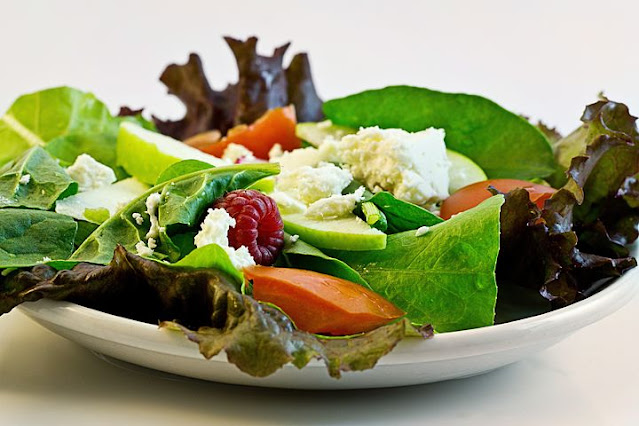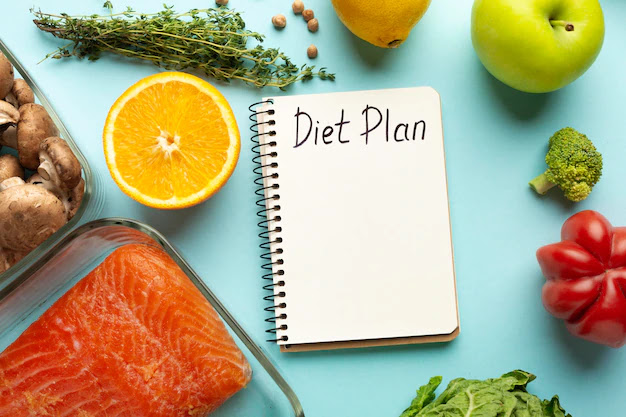Some foods have high amounts of sugar, refined carbohydrates, and fat, but lack essential nutrients such as protein and fiber. This can impede weight loss and lead to adverse health consequences.
The primary emphasis for weight loss for most individuals is typically centered on reducing calorie intake.
is essential to take into account the kind of foods that you consume.
Consuming foods rich in protein and fiber can promote satiety, which may aid in weight loss efforts.
In contrast, an excessive consumption of foods high in refined carbs, sugar, or fat can increase calorie intake, rendering weight loss more arduous.
11 Foods to Restrict When Attempting to Achieve Weight Loss.
1.Sugary drinks
Beverages sweetened with sugar, such as soda, contain excessive calories and added sugars.
Excessive intake of sugar-sweetened beverages is strongly linked to weight gain and can have detrimental impacts on one's overall health.
Although sugar-laden beverages contain significant amounts of calories, they are not recognized by the brain in the same way as solid food.
Consuming calories in liquid form does not elicit the same feeling of fullness as solid food, which may result in failure to reduce food intake. Consequently, liquid sugar calories are often ingested in addition to regular food consumption, contributing to overall calorie excess.
In the pursuit of weight loss, one may consider restricting their intake of sugary drinks and choosing healthier alternatives such as flavored water, kombucha, tea, or coffee.
Overview
- Sugar-sweetened beverages can have adverse effects on both weight and overall health. For those aiming to lose weight, curtailing the consumption of soda and similar drinks could potentially yield significant results.
3.Candy bars
Candy bars are a concentrated source of added sugars, oils, and refined flour.
In addition, candy bars are nutrient-poor and calorie-dense. Chocolate-coated variants of candy bars usually contain between 200-300 calories, with extra-large sizes having even higher calorie content.
If you have a sweet tooth, you may want to choose a snack-sized candy bar or a small serving of dark chocolate and complement it with healthy options such as fresh fruits, nuts, or a yogurt parfait.
Overview
- Candy bars contain considerable amounts of added sugars, refined flour, and oils. Moreover, they are calorie-dense and do not provide substantial satiety.
3.French fries and potato chips
French fries and potato chips tend to have high amounts of calories and fat.
Observational studies have indicated a correlation between the consumption of French fries and potato chips and the development of weight gain and obobesity.
A 2011 study concluded that potato chips may contribute to greater weight gain per serving than any other food.
Additionally, certain types of potatoes such as baked, roasted, or fried ones may contain acrylamides, which have been associated with cancer.
Hence, it is advisable to consume these foods moderately while maintaining a well-balanced diet.
Overview
- French fries and potato chips contain significant amounts of calories and fat, which could lead to weight gain when consumed excessively. Hence, it is recommended to consume these foods in moderation.
4.White bread
White bread undergoes extensive refining and typically contains significant amounts of added sugar.
Due to its high glycemic index, white bread can cause a quick surge in blood sugar levels.
A 2014 study that involved 9,267 individuals discovered that consuming two slices (120 grams) of white bread daily was associated with a 40% higher risk of weight gain and obobesity.
Numerous healthier options are available to replace the traditional wheat bread, one of which is Ezekiel bread. Made from sprouted legumes and grains, Ezekiel bread is a more nutritious alternative.
It is important to note that wheat bread, including alternatives like Ezekiel bread, contains gluten. Therefore, individuals with celiac disease or gluten sensitivity should avoid consuming these types of bread.
Here are some additional choices for individuals following a gluten-free diet: oopsie bread, cornbread, and bread made with almond flour.
Overview
- White bread has a high glycemic index, which can contribute to weight gain and obesity. Additionally, it contains gluten, which can cause issues for individuals with celiac disease or gluten sensitivity. However, there are other nutritious bread alternatives available, such as Ezekiel bread, made from sprouted grains and legumes.
5.Some fruit juices
Supermarket fruit juices may differ significantly from whole fruits.
In reality, some varieties of fruit juices can contain as much sugar and calories as soda, if not more.
Additionally, many fruit juices sold at supermarkets have little in common with whole fruit.
Fruit juice typically lacks fiber and can be consumed without any need for chewing.
A glass of orange juice lacks the fiber present in a whole orange and doesn't require chewing. As a result, it is less filling and easier to drink large quantities of it quickly, which can contribute to consuming excess calories.
Consider choosing whole fruits over fruit juice. Alternatively, if you opt for fruit juice, limit your consumption to approximately 4 ounces (118 milliliters) per serving.
Overview
Fruit juice is typically high in added sugar and calories, and lacks fiber compared to whole fruit. To avoid overconsumption, it is advisable to limit fruit juice intake to smaller portions, around 4 ounces (118 milliliters) at a time, and choose whole fruit as an alternative.
6.Ice cream
Most varieties of ice cream contain high amounts of sugar, which contributes to its calorie content.
A small serving of ice cream can be a treat, but it’s important to be mindful of portion sizes. Eating large quantities of ice cream can contribute to excess calorie consumption.
To avoid overeating, it's best to serve yourself a small portion and avoid eating directly from the container.
Instead of indulging in store-bought ice cream, try making your own frozen desserts using healthy ingredients such as full-fat yogurt and fruit, which are high in nutrients and lower in added sugar.
Overview
- Store-bought ice cream is often high in sugar and calories, which can hinder weight loss efforts. Consider making your own frozen desserts at home using less sugar or opting for smaller portion sizes if you can't resist store-bought ice cream. Using nutritious ingredients such as full-fat yogurt and fruit can also be a healthy alternative.
7.Pastries, cookies, and cakes
These sweet treats such as pastries, cookies, and cakes are usually high in calories and added sugars.
In addition to being high in calories and added sugar, pastries, cookies, and cakes are not very filling, which means that you may feel hungry soon after consuming them.
It's important to limit your intake of pastries, cookies, and cakes as they contain a high amount of calories and added sugar that aren't very satisfying, making you feel hungry quickly after consumption. Instead, it's recommended to enjoy them in smaller portion sizes occasionally while maintaining a balanced diet.
If you're looking for healthier alternatives to satisfy your sweet cravings, consider options such as dark chocolate, fruit, trail mix, or chia pudding.
Overview
- Pastries, cookies, and cakes are calorie-dense and loaded with added sugar, yet fail to provide satiety. To support weight management, it's recommended to consume them in moderation and smaller portion sizes. Instead of these sweets, consider snacking on nutrient-dense alternatives such as dark chocolate, fruit, trail mix, or chia pudding.
8.Some types of alcohol (especially beer)
The calorie content of alcohol is higher than that of carbohydrates and protein, providing approximately 7 calories per gram.
The relationship between alcohol and weight gain is not well-established, as there is limited evidence on the topic.
Moderate alcohol consumption appears to be safe and even associated with reduced weight gain. Conversely, heavy alcohol consumption has been linked to increased weight gain.
The impact of alcohol on weight gain can depend on the type of alcohol consumed. Beer is often associated with weight gain, while moderate wine consumption may have some health benefits.
Overview
- Reducing your alcohol intake or consuming it in moderation can be a helpful step if you're trying to lose weight. Opting for lower-calorie drinks or alternatives like sparkling water with a slice of fruit can also be a good option.
9.Pizza
Although pizza is a widely consumed fast food, commercially prepared pizzas tend to be packed with calories and contain ingredients such as processed meat and refined flour.
Consider creating your own pizza with wholesome ingredients and toppings if you desire to indulge in a slice of pizza.
When ordering from a restaurant, it's advisable to select toppings that are lower in calories, such as grilled chicken, peppers, onions, garlic, mushrooms, or spinach.
Another option is to opt for thin crust pizza to minimize the calorie count, or you can accompany a slice or two with a salad or a side of steamed broccoli to complete your meal.
Overview
- Weight management can be aided by avoiding commercially made pizzas containing highly refined and processed ingredients. One can choose to create their own pizza at home or choose lower calorie toppings to support their goals.
10.High calorie coffee drinks
Caffeine is among the numerous biologically active components present in coffee.
In the short run, these compounds have the potential to enhance your metabolism and augment fat burning.
Nevertheless, numerous coffee beverages are laden with high amounts of sugar and cream, contributing significantly to the overall calorie count per serving.
When attempting to shed some pounds, it's advisable to reduce the intake of such drinks or opt for plain black coffee with a hint of milk or cream for sweetness.
Overview
- Black coffee, in its pure form, has the potential to enhance metabolism and augment fat burning. But, numerous coffee beverages are loaded with high amounts of sugar and cream, causing a significant increase in the overall calorie count.
11.Foods high in added sugar
Excessive consumption of added sugar is believed to play a role in various chronic ailments, such as heart disease, obesity, type 2 diabetes, and liver disease.
Edibles with high added sugar content tend to offer a high number of calories but lack other vital nutrients and do not provide satiety.
Sugary breakfast cereals, flavored low-fat yogurt, and granola bars are some examples of foods that could have significant amounts of added sugar.
It's important to exercise caution when choosing "low fat" or "fat-free" products, as manufacturers frequently add extra sugar to compensate for the lost taste when the fat is extracted.
Overview
- Consuming excess added sugar can result in high calorie intake and potentially lead to various chronic health ailments. Products marketed as low fat or fat-free often contain high sugar levels and should be consumed in moderation.
The bottom line
The nature of the food you consume can have a significant influence on your weight loss journey.
Apart from containing more calories, certain foods may also lack essential nutrients that promote weight loss, such as fiber or protein, leading to a less filling effect.
It is important to read food labels attentively and restrict the consumption of highly processed or sugar-laden foods.
Moreover, it is crucial to take into account the recommended serving sizes. Nutrient-rich foods, such as nuts, dried fruit, and cheese, may contain high calories, making it easy to overeat.
Adopting mindful eating habits involves paying attention to each bite, slowly chewing your food, and being mindful of your fullness levels, which can aid in moderating your food intake.
THANK YOU
VISIT AGAIN












Comments
Post a Comment